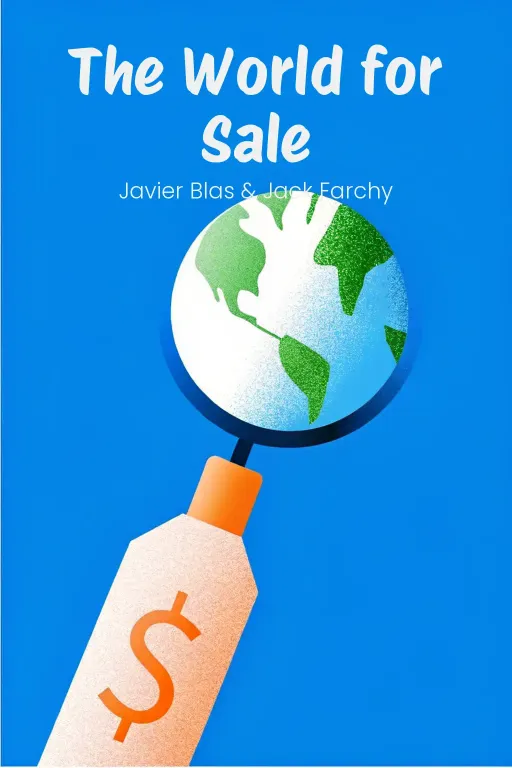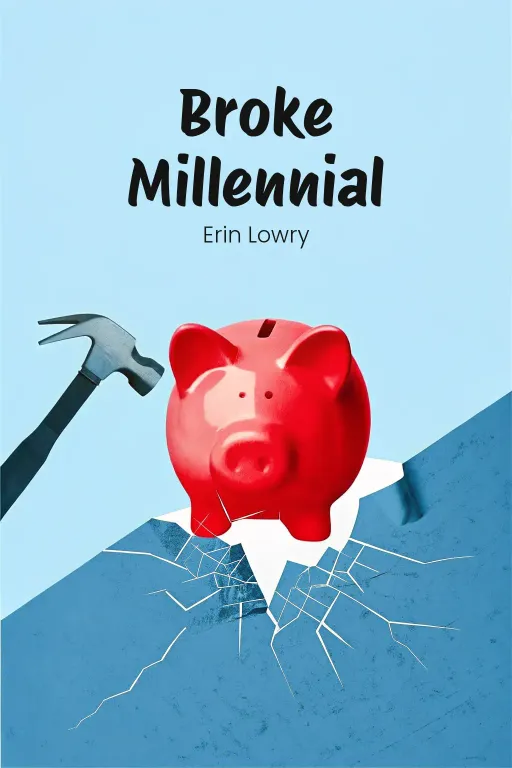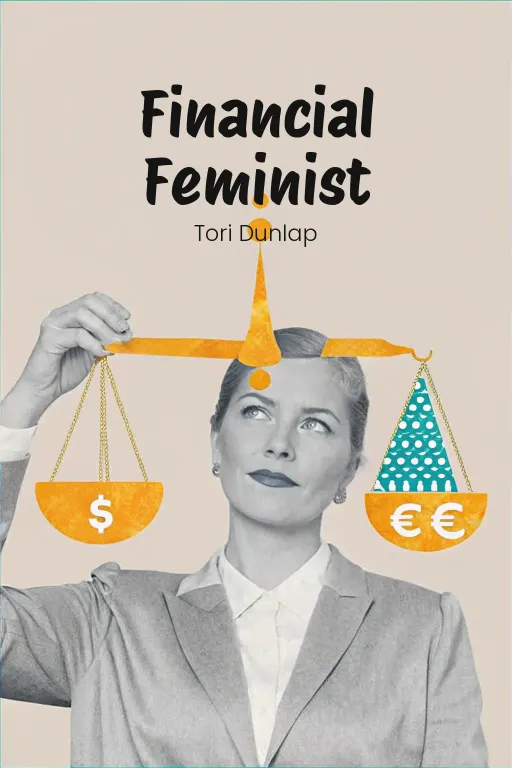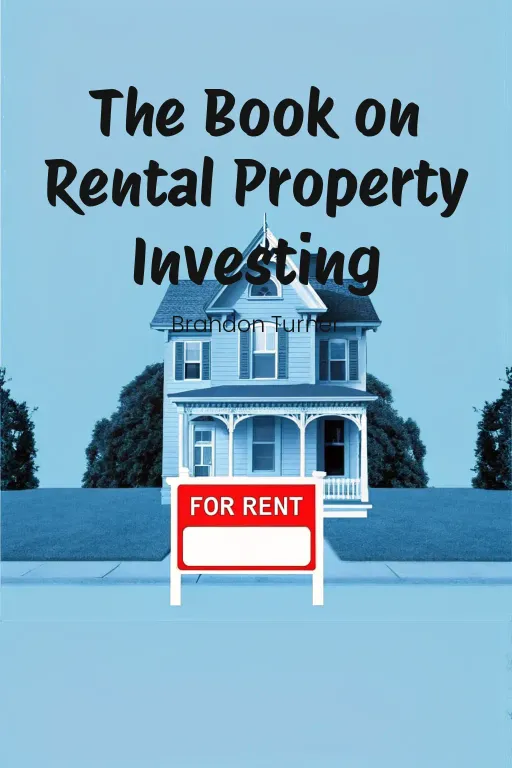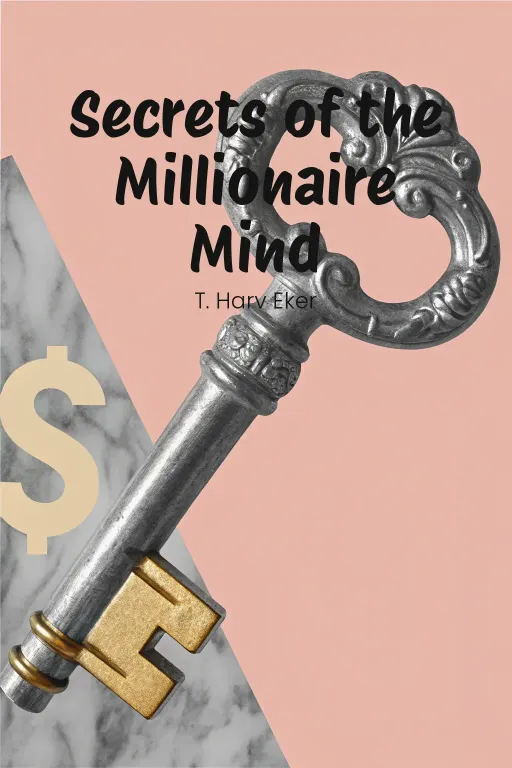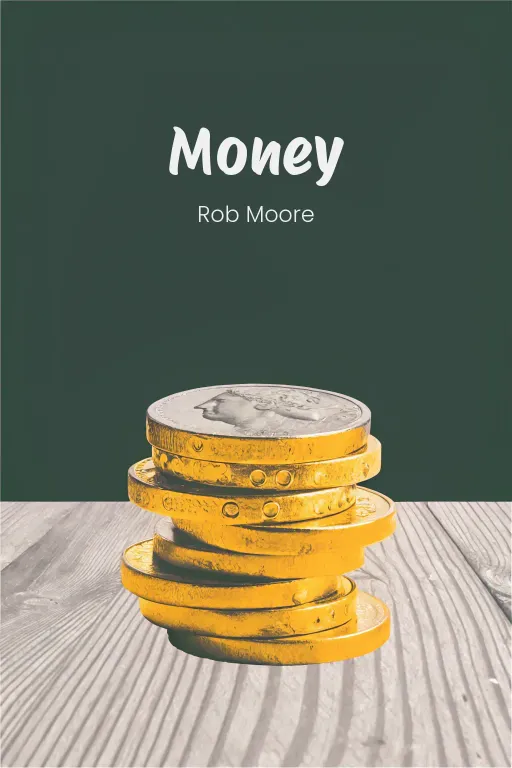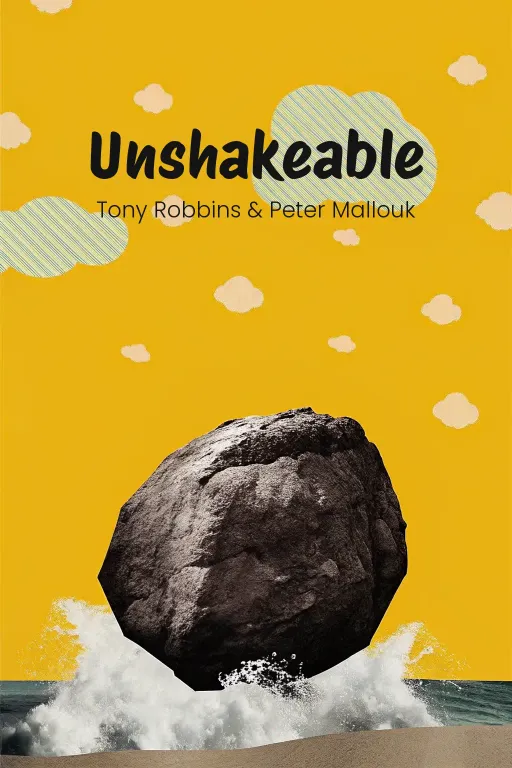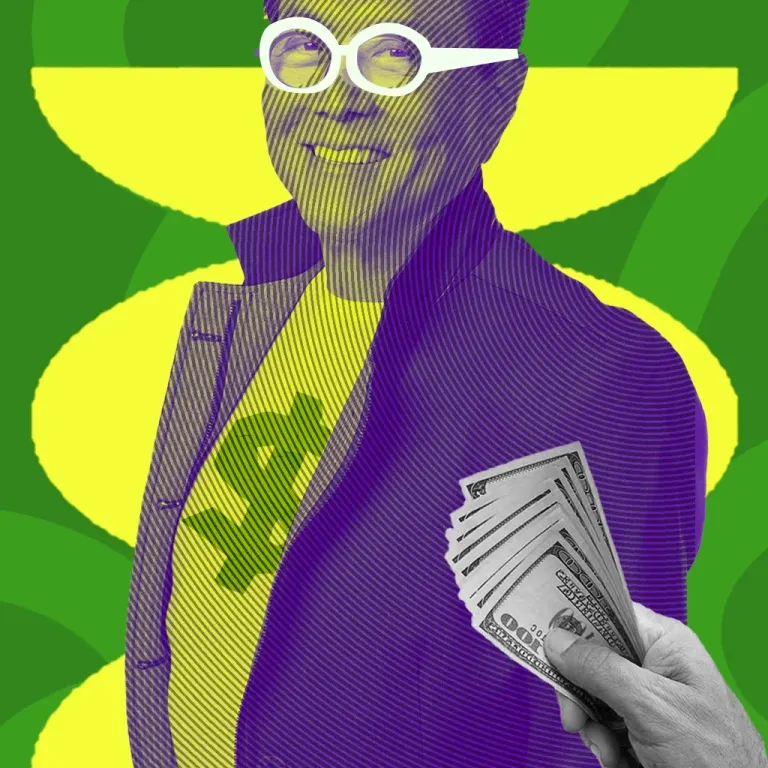
Wealth Without the Wage: Own Your Future Now
Podcast by Let's Talk Money with Sophia and Daniel
What the Rich Teach Their Kids About Money — That the Poor and Middle Class Do Not!
Wealth Without the Wage: Own Your Future Now
Part 1
Daniel: Hey everyone, welcome! Let me ask you this: what's the first thing you learned about money? Was it all about saving, budgeting, and chasing that regular paycheck? Or did someone actually teach you how to make your money “work” for you? Sophia: I'm betting it's not the second one. Most of us got the same script: "Go to school, get good grades, land a stable job, and bam—sudden success!” But what if that's actually setting us up to stay stuck in a financial rut? Daniel: That's exactly what Robert Kiyosaki challenges in Rich Dad Poor Dad. The book contrasts the lessons from the two influential figures in his life: his "Poor Dad" and his "Rich Dad." Poor Dad played by the middle-class rules, focused on education and job security, while Rich Dad tossed out that old playbook in favor of financial education, entrepreneurship, and building assets. Sophia: It's not just about chasing a bigger salary. It's about truly grokking how money operates, what really counts as an "asset," and, crucially, escaping that never-ending "Rat Race" of working just to cover your bills. Daniel: Precisely! Today, we're diving into Kiyosaki's blueprint for achieving financial freedom. First up, we'll explore how changing your mindset is the cornerstone of wealth creation. Then, we'll tackle those mental and emotional hurdles that prevent people from growing their wealth. And finally, we'll break down some practical strategies—real, actionable steps—that you can implement to move towards financial independence. Sophia: Think of this episode as your financial GPS. We're mapping out the mindset you'll need, clearing away those annoying roadblocks, and equipping you with the tools to really accelerate towards your goals. So, let's get started, shall we?
Financial Literacy and Mindset
Part 2
Daniel: Okay, so let's jump right in. Kiyosaki's "Rich Dad, Poor Dad" isn't just about saving money, it's a whole new way of thinking about finances. It's about really understanding how money works, not just earning it and spending it. That’s where the two dads come in, right? Sophia: Exactly. You've got Poor Dad advocating for the secure job route, and then there's Rich Dad saying, "Take risks, make your money work for you." But, I mean, Daniel, doesn't that sound a little easier said than done? We're practically programmed to follow that "Rat Race" path from day one. Daniel: Totally, and that's why this book resonates so much. Let's break it down a bit. Poor Dad saw money as limited, right? Security was his main thing – saving and avoiding risks. Sound familiar to anyone? Sophia: Oh, yeah. "Better safe than sorry," right? But Rich Dad had a totally different spin, didn't he? Less about protecting what you have and more about growing it. Daniel: Exactly. He flipped the script. Money's not something to be afraid of; it's a tool you can use. Take risk, for example. Poor Dad avoided it completely, afraid of losing what he had. Rich Dad taught Kiyosaki to take “smart” risks, always asking "How can I afford this?" not just saying "I can’t afford it," and shutting down. Sophia: That's a pretty bold shift. It's taking control of the situation instead of letting money – or lack thereof – control you. Okay, real talk: If you're just scraping by, how can you even think about affording anything, let alone investing? Daniel: Good question. That’s where understanding the difference between assets and liabilities comes in. All too often, people put whatever little money they save into liabilities and think they're investing. Sophia: Like buying a house – the classic example, right? We’re taught that owning a home is the ultimate goal, but Kiyosaki says it's a liability unless it actually generates income. Daniel: Exactly! Your house feels like an asset because it might increase in value, but until you sell or rent it out, it's costing you money through mortgages, maintenance, taxes... A real asset, according to Rich Dad, actively puts money into your pocket. Think rental properties, stocks, businesses – anything that generates income. Sophia: That's a tough one to swallow, because homeownership is like, ingrained in our thinking. It's part of the "American Dream" after all. Daniel: Exactly! It's not necessarily wrong to own a house – it’s all about your intention behind it. If it adds to your cash flow, then it’s an asset. But if you're stretching yourself to make it work, thinking it'll magically make you wealthy someday… well, that's when it becomes a liability. Sophia: Okay, that makes sense. And this ties into cash flow patterns, right? How the poor, middle class, and wealthy handle their money? Daniel: Precisely. The poor? They earn enough to cover their expenses, and that's it. The middle class? They might earn more, but they spend it on liabilities disguised as assets – mortgages, car payments, credit card debt. And then the wealthy? They put their money into income-generating assets, and that compounds over time, creating passive income. Sophia: Alright, so building assets is the way to escape the "Rat Race." But why don't we learn this stuff in school? Seriously, I think I know more about the Pythagorean theorem than how to invest in an index fund! Daniel: Seriously! Don't even get me started on the education system. It's designed to create employees, not investors. They teach you how to earn a paycheck, but not how to manage or grow it. Sophia: Which is why even highly educated people – doctors, lawyers, engineers – can end up struggling with their finances. They have the income, but they don't have the framework to make it work for them. Daniel: Exactly Kiyosaki’s Poor Dad! He was academically brilliant but lacked any real financial know-how. Whereas Rich Dad, didn't focus on formal education. He was all about learning by doing, finding mentors, and good old trial and error. Sophia: And that whole trial-and-error thing is key. I mean, Kiyosaki has that crazy story about trying to melt toothpaste tubes into fake coins – illegal, totally ridiculous, but it shows how curious he was. Daniel: Exactly! It wasn't about actually succeeding in that specific venture. It's about experimenting, learning, and developing that entrepreneurial spirit from a young age. Sophia: And that's what separates the people stuck in the "Rat Race" from those who break free. Okay, playing devil's advocate again. It sounds great on paper, but most people are afraid of failing and not everyone can afford to take big risks. Daniel: I get that. Fear and greed are two of the biggest emotional obstacles to financial success. Fear makes you too cautious, while greed pushes you toward wanting instant riches. Kiyosaki argues that managing these emotions, and developing discipline and really thinking things through is just as important as knowing the difference between assets and liabilities. Sophia: Right, so don't let fear stop you, but don't let greed push you into stupid decisions. Got it, balance. Daniel: Exactly. And that balance comes from education and mindset. Once you cultivate creativity and resilience – like Kiyosaki learned during that toothpaste coin fiasco – you start to see opportunities where others only see problems. Sophia: Sounds like a recipe for breaking the mold.
Overcoming Financial Obstacles
Part 3
Daniel: So, we've talked financial literacy, right? Now comes the real test: actually “doing” something with that knowledge and overcoming the hurdles that trip most people up. And honestly, this is where it gets real. It's not about knowing what to do; it's about tackling the mental and emotional stuff that gets in the way. Sophia: Totally. You can have, like, the perfect budget, the killer investment strategy, but fear or just plain old bad habits will sabotage you every time. Isn’t there a saying? "We have met the enemy and he is us.” Daniel: Exactly! Kiyosaki boils it down to five key obstacles: fear, cynicism, laziness, bad habits, and arrogance. And these aren't just financial roadblocks; they're mindset roadblocks. He really dives deep into how these things affect the decisions we make and, crucially, the opportunities we miss. Sophia: Okay, Daniel, let’s dissect these, shall we? First, fear. No shocker there. Money and fear are practically glued together for most people. Daniel: It's huge! Fear of failure, fear of losing money, fear of just making the wrong move. Kiyosaki shares a story about a friend who could have bought property in Phoenix when the market was down. The numbers made sense, the opportunity was there, but fear just froze him. He couldn’t pull the trigger. Sophia: And, if I had to guess, that property probably became super valuable, and he was left watching everyone else cash in, right? Daniel: You nailed it! The market bounced back, that property skyrocketed, and others who took the chance made a killing. The thing is, fear can stop you before you even start. It’s not just avoiding actual losses, but about refusing to take calculated risks. Sophia: So, Kiyosaki’s not saying be fearless, but learn to manage it, right? Acknowledge the fear, prepare yourself, do the research, and move forward strategically. Daniel: Precisely. Feeling fear is natural, but letting it dictate your every move keeps you stuck. Use it as motivation to learn and prepare. That friend could have done more research, gotten advice, and taken a smaller risk. Avoiding it completely was the mistake. Sophia: But fear often brings its buddy, cynicism, along for the ride. Like, after missing that opportunity, someone might say, "Oh, investments are just too risky," or "That whole market’s a scam." It’s easier to write something off than admit you messed up. Daniel: Absolutely! Cynicism is Kiyosaki's second big obstacle, and it's fueled by external voices as much as internal ones. He talks about Richard, a colleague, who was excited about an investment the Kiyosakis presented. But then Richard talked to some "well-meaning" friends who planted seeds of doubt. These “experts” were just projecting their own fears! So Richard backed out. Sophia: Richard let other people’s negativity decide for him. I mean, skepticism’s good – you should question things! But that’s different from blindly following the naysayers. Daniel: Exactly. Skepticism makes you research and validate; cynicism makes you miss out on all the potential. Richard saw the investment succeed, watched others profit, and realized his hesitation, based on negativity, cost him big time. Sophia: It's like that saying: "Don't take criticism from someone you wouldn't take advice from." Critical thinking is key. Get feedback, sure, but filter it. Decide for yourself. Daniel: Exactly, you need to trust your judgment and learn to tell good advice from just plain old background noise. Now the next barrier might surprise some people: laziness. Sophia: Laziness? That seems, well, obvious. Though I bet Kiyosaki has a unique spin on it. Daniel: He does. Laziness often hides behind being "busy." People say, "I'm too busy to look into investments." Or, "I don't have time to figure out saving because my job is demanding." What looks like productivity can sometimes be avoiding change. Sophia: That's sneaky. "I’m swamped!" becomes the perfect excuse to stay right where you are. People avoid tough financial decisions and just…do nothing. Daniel: Exactly. And Kiyosaki’s solution to laziness is asking the right questions, especially, "How can I afford it?" Being proactive shifts the mental narrative. You stop saying “I can’t” and start thinking of solutions. Sophia: But asking "How can I afford it?" doesn’t magically make money appear. What’s the actual strategy here? Daniel: It’s about unlocking creativity! For example, "How can I afford it?" might push someone to rethink their budget, get a side hustle, or re-evaluate their expenses. Remember, the goal isn’t to find instant answers, but to shift your thinking toward what’s possible. Sophia: Okay, I see where you're going. Laziness isn’t just sitting on the couch – it’s mental inertia. Daniel: Precisely! Now, habits are very closely tied to this. Like how people prioritize their money. Kiyosaki says most people "pay their bills first." Sounds responsible, right? But it's a trap. Sophia: Wait, paying your bills first is bad? That seems completely backwards. Daniel: His Rich Dad taught him to "pay yourself first." Before you pay anyone else, before the bills, before utilities, you set aside money for savings and investments. This forces you to handle any cash shortages creatively, instead of sacrificing your future wealth-building. Sophia: And let’s be honest, the start probably isn't all sunshine and rainbows. This sounds like it takes discipline and some serious adjustments. Daniel: It does! Let’s say you’re short on cash after you’ve set aside money for investing. Instead of raiding those savings, you might slash expenses or find new income streams. It’s uncomfortable, but it builds resilience and ensures your assets grow over time. Sophia: Makes sense. You’re front-loading your future financial growth by prioritizing your future self over your present needs. Strategic, not reckless. Daniel: Exactly. Which brings us to the last – and sneakiest – barrier: arrogance. Sophia: Ah. I’m guessing this isn’t about having an inflated ego, but more like, "I already know enough." Daniel: Exactly! Arrogance shuts down learning because people are convinced they already have all the answers. Kiyosaki argues that people miss opportunities to learn about taxes, financial systems, or investment strategies because they think it’s irrelevant or too complex. Sophia: Or they think they’ll "figure it out later," which, spoiler alert, they usually don’t. Daniel: Exactly. Rich Dad pushed for lifelong learning. He emphasized building a team – financial advisors, legal experts, accountants – to fill in knowledge gaps. It's not about doing everything yourself but knowing enough to confidently guide the ship. Sophia: So humility’s the key. Acknowledge what you don’t know and surround yourself with people who do. Sounds simple, but it takes effort. Daniel: It does! These barriers – fear, cynicism, laziness, bad habits, and arrogance – all have a common thread: mindset. And the great thing is, with awareness and consistent work, you can overcome them. Sophia: So, the biggest challenge isn’t external, it’s beating your own fears and mental blocks. Get that right, and everything else lines up.
Practical Wealth-Building Strategies
Part 4
Daniel: Once we've tackled those mindset hurdles, it's all about actionable wealth-building. This is where Kiyosaki really bridges the gap—showing us how to move from just thinking about wealth to actually building it. Sophia: Okay, so we're finally getting to the "how-to" part, right? Fantastic. Because honestly, there's nothing more frustrating than someone telling you to get rich and then leaving you completely clueless on the practical steps. Daniel: Exactly. This section is packed with real wealth-building strategies—solid, structured techniques you can actually use. It's about connecting financial literacy with financial independence, and he gives really clear examples. Sophia: Sounds like we're about to get to the part where our listeners will want to grab their pens. So, where does Kiyosaki suggest we start? Daniel: One of Kiyosaki's golden rules is to "pay yourself first." It's so simple, but it's a real game-changer. Basically, before you pay any bills, buy groceries, or even think about those fun impulse buys, you prioritize saving and investing. Sophia: Wait a minute. That goes against everything we're usually taught, doesn't it? We're always told to take care of our obligations first. So what's the deal here? Daniel: Well, that's the trap, isn't it? By always putting bills and expenses first, your financial future becomes an afterthought—if you're lucky enough to have anything left over. Kiyosaki's approach forces you to treat wealth-building as a “non-negotiable” priority. That money you save or invest? Untouchable. Sophia: But what if you're short on cash after putting that money aside? Doesn't that just create more stress? You know, rent doesn't pay itself… Daniel: Exactly! That's precisely what Kiyosaki wants. It's like putting yourself at the front of the financial line. The pressure forces you to get creative. Maybe you cut back on some luxuries, negotiate your debt, or even find a side hustle. You become resourceful because, really, you have no choice. Sophia: Okay, I can see how that builds discipline and resilience. But say someone's living paycheck to paycheck, really struggling. What if they honestly can't afford to set aside even an extra 10%? Daniel: Start even smaller, then. Maybe just 1%. The key is to build the habit. And over time, you'll absolutely find ways to increase that percentage—whether it's by improving your budget, reducing your expenses, or adding income streams. The consistency is what makes it add up. Sophia: Right, baby steps. Got it. Moving on, I know Kiyosaki also has strong feelings about how we treat things like luxuries. Daniel: Absolutely. He advises to use assets to buy luxuries, which is kind of genius. It’s all about delayed gratification—don't use credit cards or loans to get that dream car or go on that fancy vacation. Instead, buy or build assets that generate the income to pay for those things Sophia: That makes sense, though it’s probably easier said than done when you’re staring at those custom sneakers or that tempting vacation package deal, right? Daniel: True, but Kiyosaki flips the script. Instead of saying, "I want this luxury item now," he asks, "What can I invest in that will eventually fund this item?" So, instead of putting that island getaway on a credit card, you invest in something like dividend-paying stocks or a rental property. And when that investment starts paying out, then you book your trip. Sophia: So your luxuries aren't just draining your future—they're actually costing you potential returns. I like that! But let's get real. A rental property is a big purchase for most people. Could this delay luxury forever for some people? Daniel: Not if you start small and think creatively. Maybe your first purchase isn't a full-blown apartment building, but a simpler, passive-income asset, like REITs or even bond funds. The goal isn't to eliminate luxuries altogether—it's to fund them in a way that grows your net worth, instead of shrinking it. Sophia: Delayed gratification with an ROI. Got it. Now, something I appreciate about Rich Dad Poor Dad is that it doesn't advocate going it alone. Kiyosaki really emphasizes seeking mentors, right? Daniel: Absolutely. Having a mentor, especially someone who’s already achieved financial independence, is such an impactful strategy. Kiyosaki himself said he owes much of his success to Rich Dad—not just for the specific lessons, but for seeing, firsthand, how those principles work in the real world. Sophia: And it's not just about having someone hold your hand, right? A good mentor should challenge your thinking and hold you accountable when you start slipping back into old habits. Daniel: Exactly. A mentor provides perspective, motivation, and really practical advice. Beyond personal mentors, Kiyosaki also focuses on finding communities of financially-minded people. Think masterminds, financial workshops—they create an environment where learning and support are constant. Sophia: I like that. Surrounding yourself with people who are already achieving what you want. That proximity can really shift your mindset, right? Daniel: Totally. But even with mentors, building wealth can still feel hard for beginners. Which is why Kiyosaki stresses that you should start small, but think big. Sophia: Let me guess—this is the “you don’t need a fortune to make a fortune” philosophy? Daniel: Bingo! So often, people assume you need huge amounts of capital to even start investing. But Kiyosaki points to examples of people who started with small risks, like buying one undervalued property, fixing it up, and renting it out. That single move can really snowball over time. Sophia: That's a good point. Starting small eliminates some of the fear, right? With less risk up front, there's less chance of a big, devastating loss. Low stakes, high learning opportunity. Daniel: Exactly. Starting small builds both confidence and valuable skills. Today, it might just be buying a single, low-cost stock; tomorrow, it could be launching a whole business. The point is to take action, even if that first step seems modest. Sophia: Okay, I get the logic. But what about learning in general? Kiyosaki talks a lot about financial games, like his CASHFLOW game—how do those fit into this picture? Daniel: Those games are one of his most innovative additions to financial education. They take the anxiety and pressure out of learning by simulating real-world scenarios. Through interactive play, you can practice managing income, expenses, and investments without the fear of real-life consequences. Sophia: So instead of losing thousands of dollars in, say, a trial-and-error stock-buying spree, you just lose… what, Monopoly money? Daniel: Exactly! But the lessons you learn are very real. For example, a player in CASHFLOW might realize they're bleeding money on "doodads"—totally unnecessary luxuries—and missing opportunities to invest in assets. That mirrors their actual spending habits and helps them redirect their money toward building wealth in the real world. Sophia: Nothing like a game to hit you with the truth about your bad habits, right? But seriously, that sounds like a great way to lower the barrier to entry for financial learning. Daniel: That's precisely why it works. Because you're in that safe environment, you really internalize those lessons about strategy, decision-making, and risk in a way that sticks with you. Sophia: Genius. So, just to recap, we've covered some really practical tools here: pay yourself first, let assets fund your luxuries, seek mentors, start small, and use tools like games to boost your financial IQ. It sounds like Kiyosaki has left us with pretty much no excuses for inaction. Daniel: I agree, no excuses at all. These steps are a roadmap—you just have to take that first one. And really, from there, the possibilities are endless.
Conclusion
Part 5
Daniel: Okay Sophia, let’s bring this home. We've been unpacking the whole journey from being totally clueless about money to actually being financially independent. It really kicks off with getting a handle on financial literacy and, more importantly, tweaking how we think about money. You know, really understanding what’s an asset versus a liability, and figuring out how to make our money work “for” us, instead of the other way around. Sophia: Right. And we also dug into the mental roadblocks that trip most people up—things like fear, you know, being cynical, just plain laziness, bad habits, and yeah, even arrogance. I think, it's not just about knowing the right moves; it's about conquering those inner demons that stop you from making those moves. I couldn't agree more, the biggest fight is the one you have with yourself. Daniel: Exactly! And once you start tackling those psychological barriers, it’s all about taking action. Things like paying yourself first, using your assets to pay for luxuries, finding a mentor, starting small, and even using interactive tools like financial games to learn. Each little move helps to build wealth that lasts. Sophia: Alright, so here’s a little challenge for everyone: This week, take a good hard look at your spending habits. Are you focusing on assets? Or are you letting fear, cynicism, or just plain old bad habits call the shots? Try to make just one tiny change—invest in yourself first, even if it's just a few dollars. Daniel: Exactly, remember, financial freedom is both a way of thinking and a process. The steps might seem small but, like Kiyosaki always says, it’s really about being consistent over time that builds lasting wealth. Start now - your future self will definitely send you a thank you note! Sophia: And, look, don’t just take our word for it—question everything, even what we’ve been talking about today. Because it’s only when you challenge these old beliefs, you know, those things holding you back, that you can really open yourself to new opportunities.

